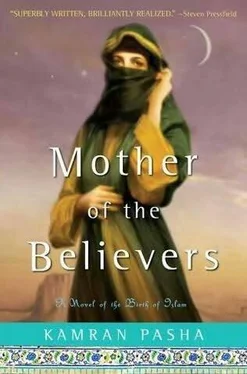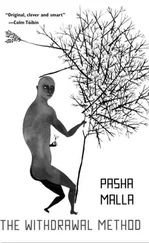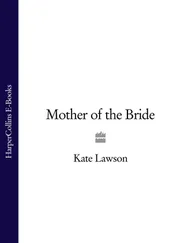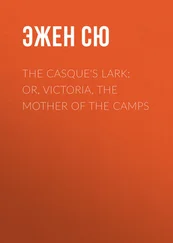There were murmurs of surprise at Huyayy’s unexpected appearance. The Messenger had long invited the Jews to come hear him preach, but they had politely refused, saying they did not need him to teach them what they already knew. And now the leader of one of the most powerful tribes had come on Friday, when the Masjid was overflowing with believers who had flocked to hear the Messenger’s weekly sermon.
“Excuse me, but may I ask a question?” Huyayy’s voice was polite, but I sensed an edge there that I did not like.
I turned to my husband, who looked at the visitor warily before nodding.
“Who did you say it was that threw down the staff before Pharaoh?”
The Prophet met the other man’s challenging gaze calmly.
“It was not I that said it, for I only recite the words of God,” the Messenger responded. “God says in the holy Qur’an that it was Moses who threw the staff.”
Huyayy’s face contorted as if he were confused.
“How interesting. And yet the Torah says that it was Aaron that threw down the staff while Moses looked on.”
There was a murmur of surprise in the crowd. It was such a minor difference that I did not care-the point of the story obviously wasn’t whether Moses or Aaron had thrown the staff but Pharaoh’s defiance of God’s clear signs. And yet some of the less sophisticated believers, unable to grasp the subtleties of poetry, found this seeming discrepancy troubling.
Sensing that his challenge had the desired effect on at least some of the worshipers, Huyayy stepped closer to the Messenger and held aloft the velvet-covered scroll. He kissed it reverently before removing its wrap and unfurling the parchment to a page of what I assumed was Hebrew writing.
“Perhaps you can show us where in the Holy Torah it says that Moses threw down the staff?”
I felt the Messenger stiffen beside me.
“I cannot read,” he said, a matter that had once been a source of shame for him but had since the days of Islam been the one clear sign of God’s favor. That a man who was illiterate could suddenly recite such great words of poetry had been the proof for many Muslims of Muhammad’s divinely inspired mission. And now Huyayy was using his unlettered past as a sword to mock the Revelation.
“Oh yes, I forgot. I apologize,” he said, with no hint of apology in his tone. “But if you would indulge me, I have another question.”
I saw the Messenger’s dark eyes beginning to narrow in irritation.
“Ask, and if God has revealed it to me, I will answer.”
Huyayy looked at the men and women seated on the floor of the Masjid as he spoke.
“How many signs did God send to Pharaoh to let the Children of Israel go?”
That was easy. Even a young girl like me who was not well versed in theology had heard the story of Moses enough times to know the answer.
“The holy Qur’an says nine,” the Prophet responded with dignity.
Huyayy made an exaggerated look of surprise, his dark lips curling back to reveal yellowing teeth.
“Really? But the Torah claims that there were ten plagues. Perhaps God forgot one when He spoke to you.”
Now I could sense real unrest among the crowd. There was a rumble of conversation as people asked one another how the Messenger of God could have made a mistake like that. Even an illiterate man could still count, they whispered.
“Another question, if I may-”
I had had enough of this uninvited guest insulting my husband. I leaped to my feet and shouted at the top of my lungs.
“No, you may not! You only seek to mock him!”
Huyayy looked at me with amusement, and his contemptuous gaze made my heart pound in anger.
“I did not know that the child bride speaks for the Prophet. It was not so in the days of Moses.”
I felt a cooling hand against my forearm. The Messenger shook his head slightly and I felt a flush of embarrassment. I sat back down, suddenly wanting to be unseen and forgotten.
The Messenger turned is attention to Huyayy. He spoke calmly, but I could see the vein at his temple beginning to throb.
“Ask, and I will answer if God has revealed it to me.”
Huyayy stepped forward, his eyes glistening like a falcon on its prey.
“Who was Haman?”
The Messenger glanced at his followers, who were looking at him eagerly, pleading with their eyes from him to best this arrogant interloper.
“He was the Pharaoh’s adviser,” the Messenger said, repeating the verses of a Revelation that had come a few months before. “Haman built a tower of baked bricks so that his king could see if the God of Moses lived in heaven.”
Huyayy smiled triumphantly.
“Alas, I am confused. The only Haman I know of in the books of my people is in the legend of Esther. He was the adviser to the Persian king Ahasuerus, many centuries after Pharaoh. And the only tower I know of that is as you described is the Tower of Babel, built in the days when all mankind spoke one tongue. But that was centuries before Moses.”
Huyayy turned his attention the crowd with a look of pity.
“Surely if you were the Messenger of God, you would know that which was revealed to the prophets before you.”
I could feel a terrible wave of anger and confusion building among the worshipers. It was like the rumble preceding an earthquake. Some of the people looked at the Prophet with newfound distrust, as Huyayy had intended. But most were glaring at the Jew who had come to make a mockery of their most treasured beliefs.
In the dark silence that followed, I heard the rustle of robes as the Prophet rose to his feet. His eyes were shining with a fiery light that suddenly made me feel afraid. I had never seen him so angry.
“I am indeed the Messenger of God, as were my brothers the prophets Moses, David, and Solomon before me.” His voice was soft, but there was more danger in his tone than any angry shout.
Huyayy smiled in his sickly sweet falseness.
“You see, that really confuses me. For the books of my people say that David was a king, not a prophet. And Solomon-well, the books say that he was a reprobate who worshiped idols and cavorted with evil spirits.”
I had never heard this. The Solomon in the Messenger’s stories was always a man of great wisdom and piety.
“If your books say that, then they lie,” Muhammad said sharply, as if someone had impugned the reputation of his daughters. “Solomon was a sincere servant of God.”
“But how could that be?” Huyayy responded with the rhetorical flourish that now filled me with rage. “You claim that your Qur’an and our Torah come from the same God. Surely they could not contradict each other if that were so.”
I looked at the Messenger and saw him struggling for an answer. He was accustomed to defending his claim to prophecy from the pagan Arabs who rejected his words as mere poetic fables. But no one had ever dissected the stories of the Qur’an to show that they differed from the Book of the Jews-whose God the Messenger claimed had sent him. I suddenly realized that Huyayy’s gambit was a grave threat not only to the Prophet’s credibility but to the entire basis of our faith.
The Prophet’s teachings had taken the ancient gods away from us, and we could not go back to them any more than an adult can revert to being an infant. But now, in one fell swoop, Huyayy had threatened to take away also the One God for whom we had suffered for so many years. He was like a thief who steals everything a man owns and then returns one night to take his life as well. If the Messenger was not who he claimed to be, we were worse off than the pagan Arabs who still believed in something, even if it was nothing more than a dream wrapped around rocks and carved pieces of wood.
Without Allah, we had nothing but despair and emptiness. Huyayy wanted to take away the very meaning of our lives.
Читать дальше












